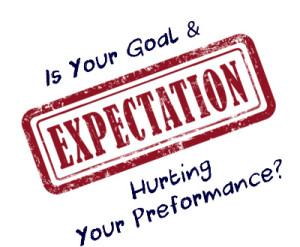 Athletes want to win every time they compete. It is in their competitive nature to work and compete hard in order to come on top and bring the prize home. Their wanting to win is often fueled by their own desires to win. They are super focused and are able to negotiate struggles that come along the way. They are very confident and come to compete expecting to win. Some people perceive them as arrogant or elitists, but what they do have is a very strong self-belief that they will beat everybody else. Tiger Woods teed it up at every tournament EXPECTING to win. When interviewed, he was not sugar-coating his intentions. His focus was not only on winning, but he expected to win.
Athletes want to win every time they compete. It is in their competitive nature to work and compete hard in order to come on top and bring the prize home. Their wanting to win is often fueled by their own desires to win. They are super focused and are able to negotiate struggles that come along the way. They are very confident and come to compete expecting to win. Some people perceive them as arrogant or elitists, but what they do have is a very strong self-belief that they will beat everybody else. Tiger Woods teed it up at every tournament EXPECTING to win. When interviewed, he was not sugar-coating his intentions. His focus was not only on winning, but he expected to win.
Many young athletes equally have the same frame of mind. They are super confident. This mental attribute may be understood, in part, to having past successes, which enhances the athlete’s self-belief that he/she will win again.
There is nothing wrong with having winning expectations. However, what is also possible is that expectations may push athletes into an emotional situation where self-pressures to win become so huge that they become paralyzed by them. Having winning expectations become a burden. Athletes come to compete not necessarily to show their outmost talent, but rather to prove to self or others that he/she is a winner. As you can imagine, these athletes become very tight as any minimal mistake will derail their chances of winning.
When expectations become a mental condition whereby athlete believe they are measured by end results, then they find themselves having to manage not only the pressures of competition, but also the pressures of not disappointing self or others. What is also true is that one’s perfect performance does not necessarily “guarantee” winning. How many times have we witnessed a winning athlete that did not really deserve to win, but somehow defeated a better prepared opponent? Also, luck may by on the other athlete’s side.
Having self-expectations do not guarantee success. It may push an athlete to continue fighting and doing his/her best. But, they may also bring unnecessary pressures that end up hurting performance. On the other hand, if the athlete prepares him/herself to have the best intention and tries his/her hardest in order to demonstrate to him/herself how good he/she is, then competition becomes an inner experience where improvement is measured by one’s improved ability rather than expecting winning results.
How to manage expectations:
1- Make sure that you become the focus of continued improvement measured by you own progress;
2- If you walk in expecting to win, be also realistic that the odds will not necessarily be on your side.



